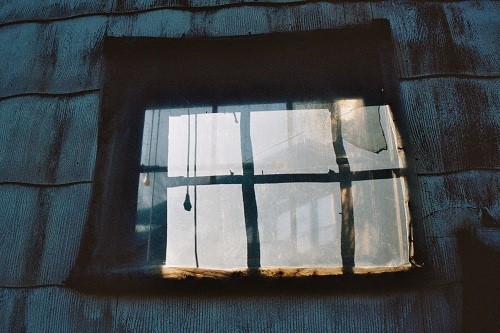 I liked ice-skating mostly because I didn’t understand it. I just pulled the stiff leather up to my knees, stood upright, wobbled back and forth until I began to move and then, in motion, I felt a thing that is not the right thing but I can convince myself otherwise. I think, This is a miracle, what I am doing.
I liked ice-skating mostly because I didn’t understand it. I just pulled the stiff leather up to my knees, stood upright, wobbled back and forth until I began to move and then, in motion, I felt a thing that is not the right thing but I can convince myself otherwise. I think, This is a miracle, what I am doing.
But he wanted to talk to me about pressure. He said, You move because the ice melts into water. You glide.
I wasn’t gliding. I was wobbling, barely, on a rink beside a movie theater. This was an indoor rink. We were in the middle of a mall. Across the way, a group of teenage girls held hands and floated past the Chik-Fil-A. I was doing my best to stand upright, thinking, I like what I’m doing because it remains a mystery.
This is how I feel about everything—like evolution, or why a cake rises. I like these things because I don’t know how they work. What I don’t know is what makes them good. Explain them to me and I don’t find them interesting anymore.
It’s a small film of water, he says, that allows you to move.
He was the boyfriend of a friend. The friend was moving somewhere ahead of us—fluidly, really. The boyfriend was a scientist—he cloned DNA in a laboratory late at night. My friend and I joked about the white coat we imagined he wore, the goggles, but I never asked him about it. Again: I like to just imagine.
When I was six, my father bought me a microscope kit with empty slides and cover-slips. He was a chemist. On weekends I plucked hair from my scalp, pricked the inside of my cheeks with toothpicks. I smeared the translucent goo on a piece of glass thin as a fingernail, secured the slide in place and zoomed in and out. I liked to watch the colors change. I liked to study the parts of me that looked nothing like the me I knew. There was still something to discover. I did this for years—eyelashes, scabs, whatever I could squeeze from a paper cut. It all got blotted down and studied. The day I learned about cells—how things we know are made up of smaller things—I found something new to care about.
When I grew up and moved away, I moved to a place a thousand miles out. I did this all alone, without knowing anyone. I thought, There are still things to discover. I meant about myself. I wanted to see some new part of me I didn’t know existed. I thought, There is more of me to know.
So I saw things, but never about myself. I saw a meteor light up the sky for an instant, saw two tons of butter carved into an astronaut, saw nine bald eagles sitting on a bank by a river. I saw a pork tenderloin as big as my face, saw two hundred crows in a tree beside a sandwich shop, saw a field look green where all that yellow met all that blue. I saw a church from a wooden back pew, saw the stitching of a mat as I bent my body forward, saw flashes of white from running too fast and too far—but it was always the same. I never felt new. There was never something there that hadn’t been there all along.
The boyfriend—he explains the blade strikes the water and it’s the water that carries us through. “It’s a unique compound,” he says, “in that it expands when it solidifies. You create friction with your weight, and that metal—it’s that friction that makes it melt.”
But all I could think was: Which thing is my blade?
“I’m not really moving,” I said. “I’m barely managing to stand up.”
“You have to look closer,” he said, pointing at the ice. “At the molecules, what you’ve done to them. You have to look at all the things you’re affecting that aren’t even you.”
—
Amy Butcher is in her final year of the Nonfiction Writing Program at the University of Iowa, where she also serves as managing editor of Defunct Magazine. Her work has appeared or is forthcoming in the Indiana Review, Upstreet, Hobart and others.
Photo by Maria Romasco-Moore
